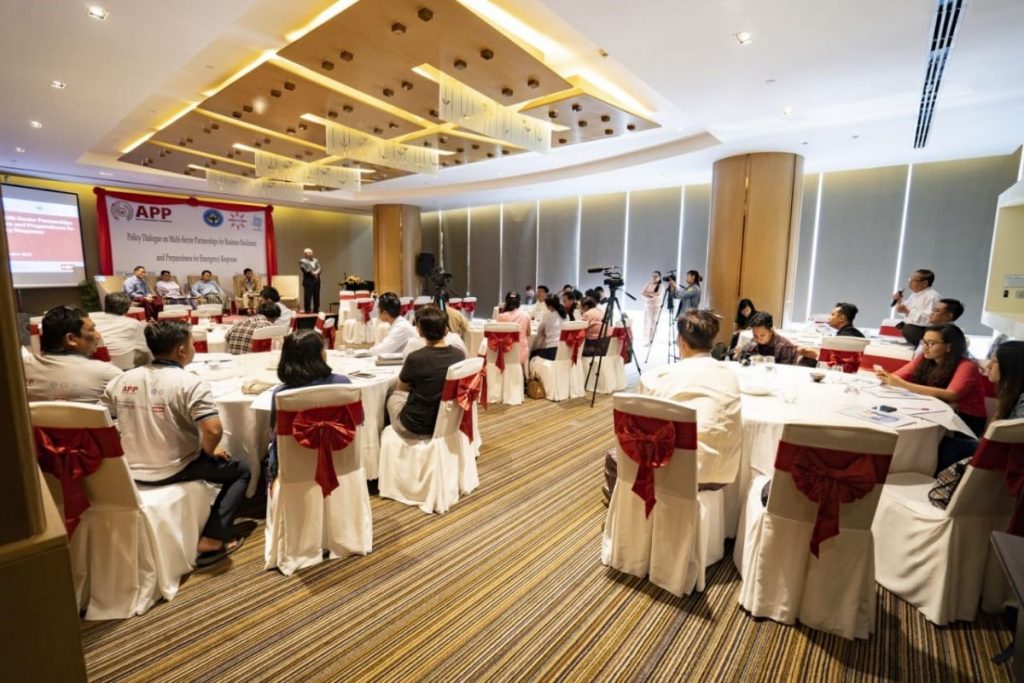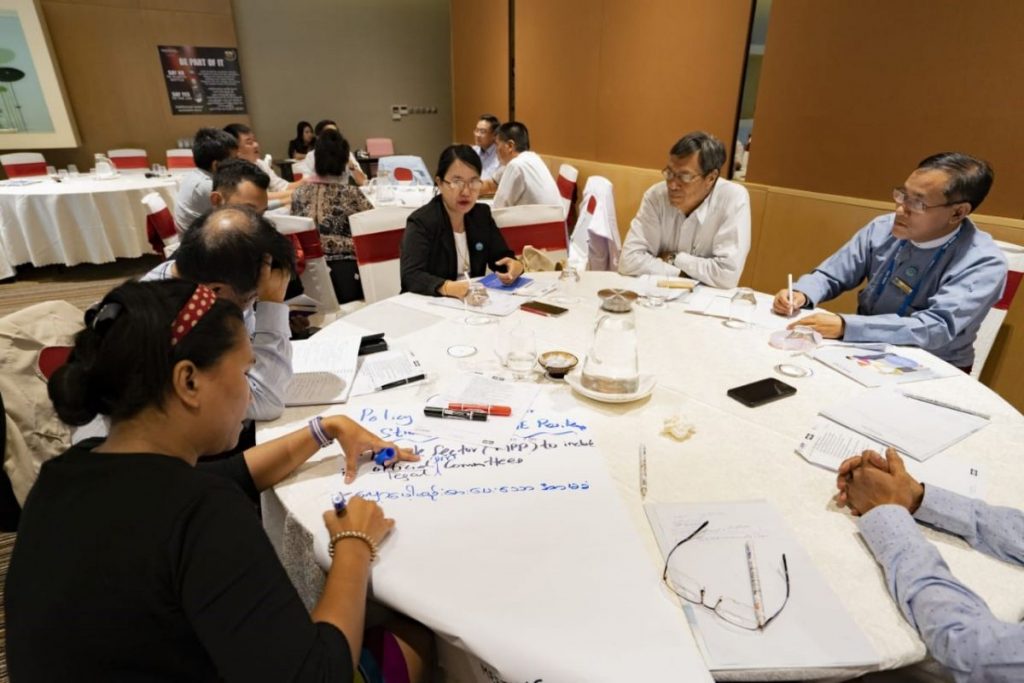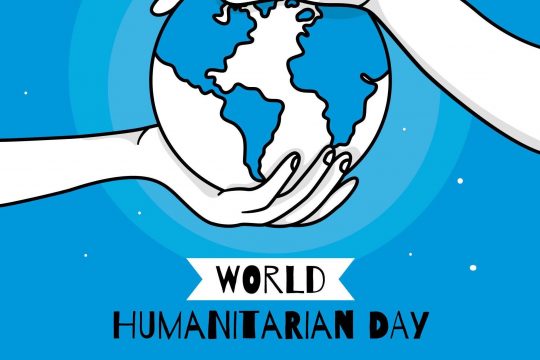A Policy Dialogue on Multi-Sector Partnerships for Business Resilience and Preparedness for Emergency Response was organized in Yangon on 13 September 2019 as part of Myanmar Preparedness Partnership (MPP) activities.
The dialogue provided a platform for 59 participants to discuss key thematic issues identified by the MPP Task Force and summarize policy recommendations to enhance multi-sector partnerships for preparedness for emergency response in Myanmar. The forum was formally opened by H.E. Tin Maung Tun, Speaker, Yangon Region Parliament Chairman who noted the importance of the private sector being resilient to disaster as an important cross-cutting issue which requires input from different stakeholders in supporting the economic and social development of Myanmar. Dr. Soe Tun, Co-Chair of MPD Network and Ms. Mio Kato, Manager, iPrepare Business team, ADPC also delivered opening remarks. The first part of the dialogue focused on the theme of Business Resilience specifically the engagement and building capacity of the private sector, particularly small and medium sized enterprises (SMEs) to withstand disruption from disaster events which requires support and inputs from not only businesses themselves, but also relevant government agencies and other business support actors.

A key approach taken under MPP for engaging businesses for enhanced preparedness for disruptive events in the Myanmar context has been awareness raising and capacity building on business continuity management (BCM), so far. Thus, a panel discussion focused on the enabling environment for adopting BCM drew on the experience of MPP activities. The panel was comprised of Dr. Soe Tun of MPD Network, Ko Kyaw Soe Naing, Executive Committee Member, Mandalay Region Chamber of Commerce & Industry, U Maw Naing Tun. Assistant Director. DDM Yangon Office and Ko Zin Min Than, BCM Training resource person each of whom reflected on their own relevant experiences as well as the Training of Training (ToT) workshops at national and sub-national levels as well as technical support delivered for SMEs conducted as part of MPP activities.
The ADPC team also shared Insights from a study conducted in Myanmar on Micro Small and Medium Enterprises (MSMEs) resilience which gave a snapshot of the challenges and gaps facing these types of businesses. The findings were taken from the ‘‘S P I N E’’ (Social, Physical, Institutional, Natural, Economic) Project: Enhancing MSME Resilience in Asia funded by Integrated Research on Disaster Risk (IRDR). The study collected responses from 101 responses from enterprises in Myanmar across the metropolitan areas: Yangon (two townships), Mandalay and Sittwe (Rakhine state).
Another key thematic focus of the dialogue was contingency or emergency response planning which has been highlighted as a critical means for formalizing multi-stakeholder coordination and partnerships under the MPP platform. Knowledgeable persons joined a panel discussion which explored the concept of contingency planning for different sectors and the value of formulating such plans in a collaborative manner as part of panel discussion. The panelists were Daw Phyu Phyu Win (Director DDM HQ), U Kyaw Than Tun of MNGOCPR, Daw May Pearl, MPD-Network/UMFCCI and Nyi Lynn Htet, ADPC Resource person on Contingency Planning who shared the experience of consultation meetings conducted so far to develop contingency plans for the respective private sector and LNGO networks under MPP.

Finally, the participants of the meeting took part in group discussions to brainstorm about potential policy interventions regarding the two themes of the forum: Business and SME Resilience as well as Contingency Planning. Policy Support suggestions for strengthening SME Resilience included advocating for CSO sector and private sector to be included in official DM committee, insurance programs and special tax rate for SMEs, add BCP as one of the checklists for company’s administration/registration requirements, BCP certificates should be issued and recognized by legal binding body (localized ISO). Furthermore, it was suggested for MPP to advocate BCP to State and Regional Parliaments and respective working committees at Amyothar Hluttaw and Pyithu Hluttaw (Senate and Congress). In terms of policy support for the contingency planning component, outputs from the group work suggested to carry out joint MPP Taskforce planning and coordination meetings to pre-arranges the respond activities for simulation exercises. Also to set up coordination meetings for transportation arrangement, land water, air for responder and lifesaving activities, as well as regular coordination meeting with DMC for planning purposes monthly or bi-monthly, focusing on preparedness joint preparedness activities and to identify gaps.
The activities were conducted as part of the ‘Program for strengthening Preparedness for Emergency Response through Multi-Stakeholder Cooperation in Myanmar’ with support from USAID’s Office of U.S. Foreign Disaster Assistance (USAID/OFDA).
For detailed media coverage of this event, access the following links:
http://miradio.com.mm/news/policy-dialogue-multi-sector-partnerships-business-resilience


